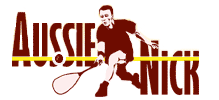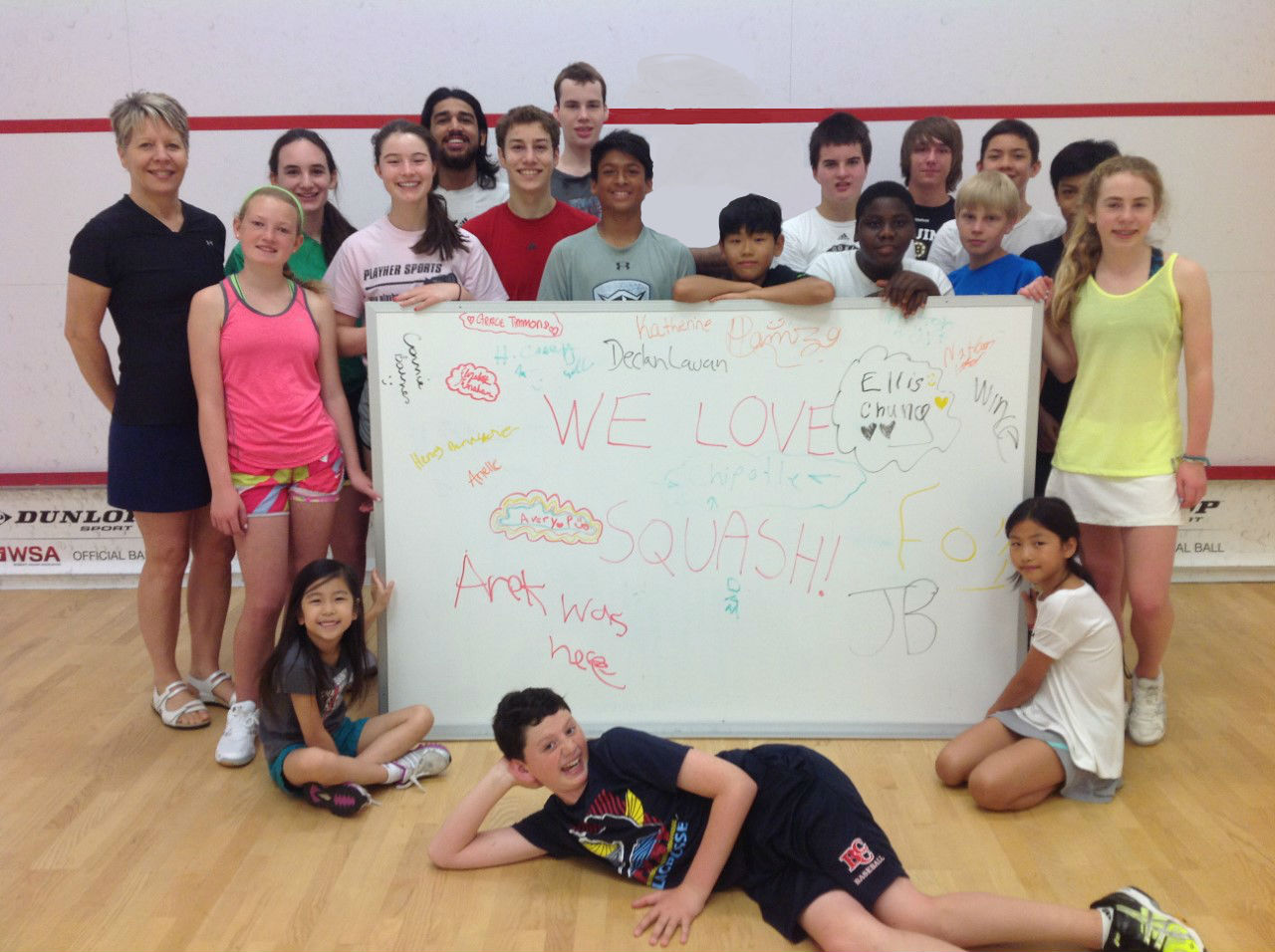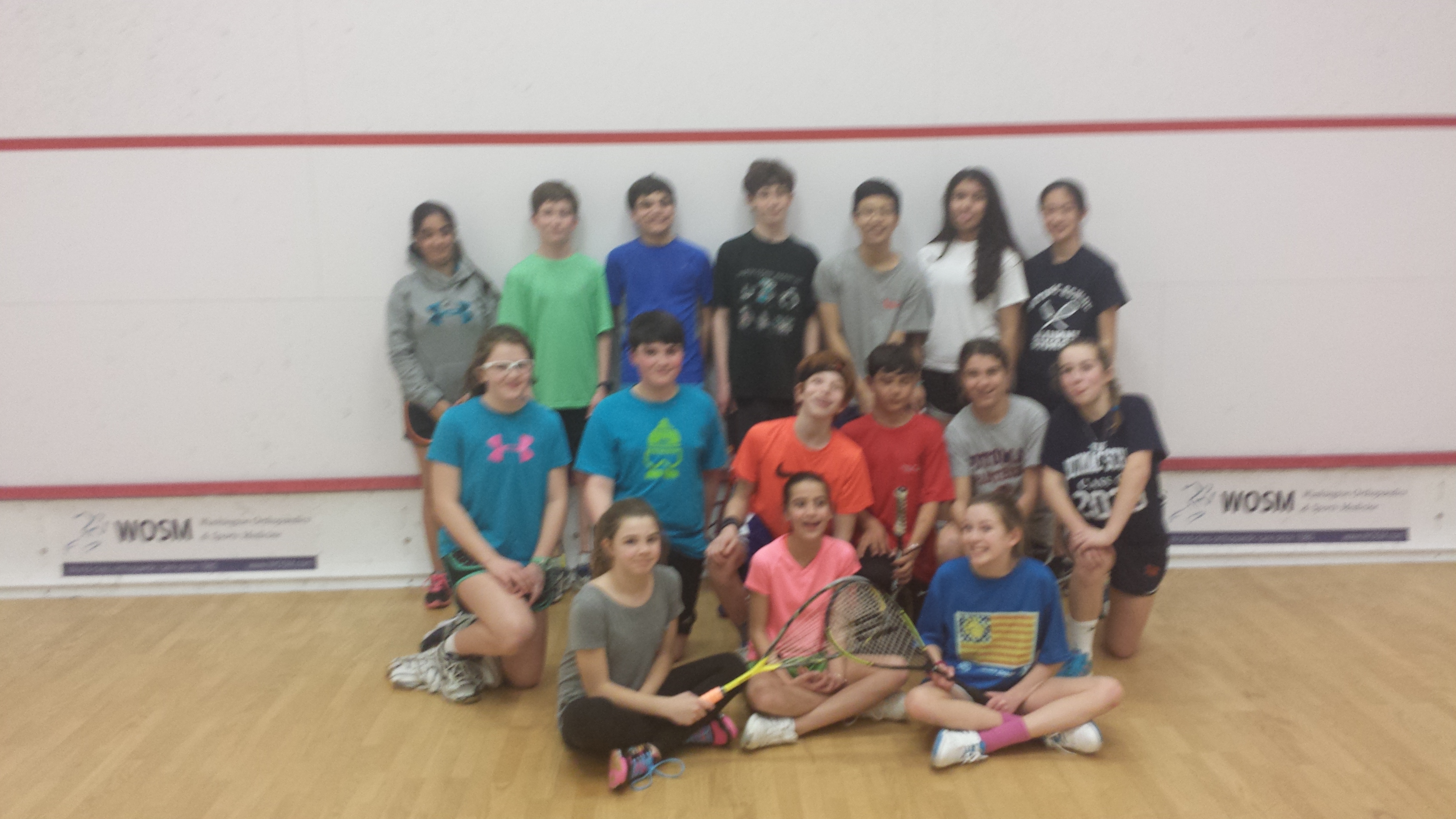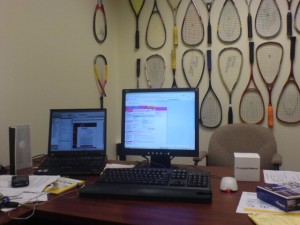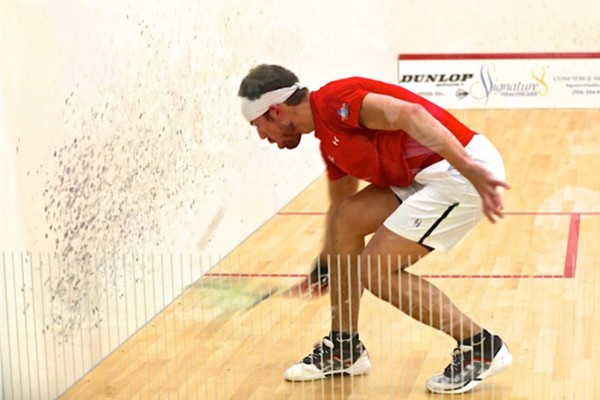By its very nature squash puts demands on your body that you cannot meet. This is true at all levels of play and usually in every rally of a match. Generally this will manifest itself as your either being too slow with feet, legs or hands and/or inaccurate with motor control over feet, legs, body, arms or hands. Of course the interaction with the brain, nervous system performance, choices we make in shot selection and movement, whether we watch out opponent etc make this a highly simplified perspective on why we lose or win any particular rally. However, without pursuing the philosophy of this too much I have mused a little over the impact of physical attributes in this somewhat simplified paradigm, and from this can we determine what is the best way to approach playing and training given our particular physical strengths and weaknesses.
In some ways it is not necessary to think about this too deeply as players will to some extent optimize their style automatically to best suit their physical specifications, although this is not always the case. Also if someone is conscious about what is best for them then they may approach training with a more specific technique and training regime in mind and this may lead to more rapid improvement.
In thinking about this I have observed many players that are successful and many that aren’t and compared their different physical attributes and tried to categorize this in a way where you might learn from it. These are innate physical attributes that I am assuming you can’t change or could only change very slowly at which time you would just alter your physical description and go through this process again. These physical attributes are assigned a range from -2 to 2, where 2 means a great degree of the attribute compared to players of the same “skill range” and -2 means greatly opposite to the attribute as written in the table compared to cohorts. Zero would mean neutral in this aspect etc. The attributes are:
- Height
- Leg Power to Weight ratio
- Wrist strength
- Maximum swing speed
- Innate Skill and Coordination
- Age
Now let me introduce another concept called playing attributes and assign them a range from -2 to -2, where a 2 would mean you would follow the approach to playing and training strongly as written below and -2 would mean you would strongly follow the opposite of the approach as worded below and 0 would mean neutral on this attribute and so on. The playing attributes are:
- Strong Grip Strength
- Long Swing length
- Long Stride/Lunge length
- High Power/Finesse play ratio
- Highly attacking posture
- High Winner/rally ratio
- High Fitness/Finesse ratio approach
There is obviously more attributes to the game, for example do I play my forehands off the orthodox or unorthodox foot, do I play mostly rails or cross-courts, but aspects like this are less linked to the physical attributes of the player. Here I am trying to look at the more significant aspects of play that are affected by physical attributes.
A way of interweaving these considerations is to place then in a table and look at a ‘pseudo-correlation index’ between the factors. What this means is how each attribute of the game (Grip strength, swing, stride, power etc) best suits and hence is an important consideration for a player with particular physical attributes (height, power, wrist strength, speed, coordination etc). In the table below, a positive number means that in my opinion this game attribute goes in sympathy (correlates) with this personal attribute, and the more positive that number the more strongly correlated they are (note that correlation is being used in a loose sense here). A zero means that the attribute of the game and the physical attribute are unconnected. A negative number means that they are negatively correlated, which means the importance of the game attribute goes with the inverse of the physical attribute.
|
Grip Strength |
Swing length |
Lunge Length |
Power v Finesse |
Attack Posture |
Winners v Rally |
Fitness v Finesse |
| Height |
0 |
-1 |
1 |
-1 |
1 |
1 |
-1 |
| Leg Power-to-weight |
0 |
0 |
2 |
1 |
2 |
-1 |
1 |
| Wrist Strength |
2 |
-1 |
0 |
0 |
1 |
2 |
0 |
| Swing Speed |
-1 |
2 |
0 |
1 |
2 |
0 |
0 |
| Coordination |
-1 |
1 |
0 |
-2 |
2 |
1 |
-1 |
| Age |
0 |
-1 |
-1 |
-1 |
0 |
2 |
-1 |
To further illustrate this let’s look at a few examples. The correlation between height and Lunge is 1. This means that the taller the player the more suited to a long stride/lunge. Conversely a shorter player should not be trying to cover the court with large strides. This particular correlation comes about from body mechanics. A tall player that tries to take a lot of little steps around the court is generally doing themselves a disservice, they are much more naturally adept at lengthening their stride to cover the court. Note the correlation even stronger between Power-to-weight and Lunge. This is because a person with high power-to-weight can more easily cope with recovering from large stretches. Conversely a lower power to weight (often symptomatic of the older player) has very little chance of recovering from a deep lunge (this is why a lot of older players have to run through a tough ball rather than stretch to retrieve).
Now look at ‘Coordination’ and ‘Power versus finesse’. These are negatively correlated, which means that Finesse should be much more of a concern than power for a player with naturally gifted coordination The third category is the uncorrelated, for example Swing speed and lunge. This says that their is no relation between the importance of the length of your stride and how fast you can naturally swing the racquet. The numbers are my estimates from my study of the game and each number has similar arguments behind it. Some are undoubtedly more controversial than others and more systematic study might change the estimates.
OK so let’s accept what we have so far, but now we have to ask what use is all this? Let me use myself as an example. When deciding how to grade your own physical attributes it is important to think of this within your normal competitive sphere, rather than on an absolute basis. So for myself in contemporary range (e.g. players around the 5.8 level) I consider myself to be tall, average leg power to weight, high wrist strength, lower hand speed, average hand-eye, and most unfortunately on the older side. Thus again using the -2 to 2 scale I might write that my physical attribute vector is:
Height = 2, leg P-t-W = 0, wrist strength = 1, Hand Speed = -1, Hand eye = 0, Age = 1
We then multiply the column vector of each of the game attributes by the physical attribute vector you gave yourself. So for game attribute Grip, I get 0 + 0+ 2 + 1 + 0 + 0 = 3. A positive number means the positive side of this attribute, in other words a strong grip would suit my physical attributes. For me I know this works, so, so far so good. Similarly I get for the other game attributes:
Swing = -6. (Strongly suggests to use a shorter swing length)
Lunge = 1 (Mildly suggests a long lunge is best for me)
Power = -4 (Strongly suggests I should concentrate more on finesse than power)
Attacking Posture = 1 (Mildly suggest I should take the ball relatively early)
Winners v rally = 6 (Strongly suggests I am suited to playing a lot of winners)
Fitness v Finnese = -3 (I should approach winning my games from a finesse perspective rather than fitness)
Another example would be my imaginary friend Jack who is a 6′ tall older player (65 yo) who has excellent innate skills but is slowing down a lot with age. For Jack he might then score himself, given his 4.5 player cohorts, say:
Height = 0, Leg P-t-W = -2, Wrist strength = -1, Hand Speed = -1, Hand Eye = 1, Age = 2
This leads to:
Grip = -2 (Jack should use a softer grip)
Swing = -2. (Jack should use a relatively short swing length)
Lunge = -6 (Strongly suggests Jack should take small steps/lunges)
Power = -7 (Strongly suggests Jack should use finesse rather than power)
Attacking = -5 (Strongly suggests Jack should not attempt to take the ball too early)
Winners = 5 (Strongly suggests Jack should shoot for a lot of winners)
Fitness = -5 (Strongly suggests Jack should concentrate on winning with finesse rather than fitness)
One aspect not covered is that of injury. If you are carrying an injury but still playing, just incorporate that injury on the effect it has on your physical attributes e.g. lower leg power-to-weight ratio than you would be capable with full fitness.
So, estimate your physical attribute data and plug itin and see how you go. Would love feedback on the concept and whether it makes sense for you or not.
Rod Barnes 8-April-2007
